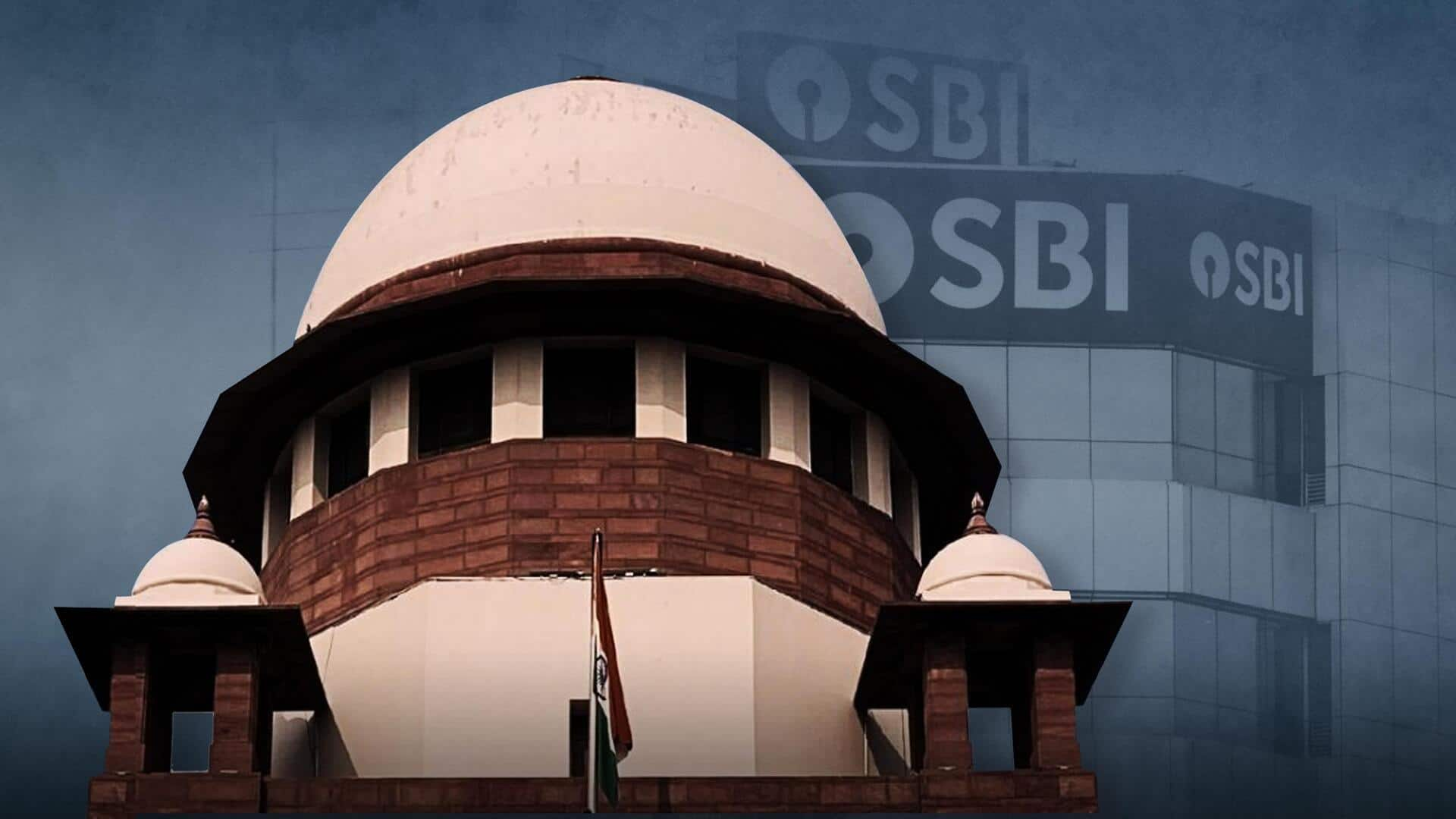
'Don't be selective': SC slams SBI over electoral bonds data
What's the story
The Supreme Court pulled up the State Bank of India again on Monday directing it to disclose "full details" related to electoral bonds received by political parties without being "selective."
The order was issued during a hearing regarding pleas concerning the disclosure of unique alphanumeric numbers in accordance with the SC directives.
A five-judge bench headed by Chief Justice DY Chandrachud directed the SBI chairman to file an affidavit by 5:00pm on Thursday, stating it has not suppressed any details.
Context
Why does this story matter?
This comes a day after the Election Commission of India (ECI) made public more data on electoral bonds provided by the bank and political parties.
The information was uploaded on the poll panel's website, one day ahead of the Supreme Court hearing.
To recall, the SC struck down the Electoral Bonds Scheme (EBS) for political funding last month, saying that it violates the citizens' right to information.
SC order
SC tells EC to upload details once SBI submits it
During the hearing, the bench said, "Your attitude seems to be 'you tell us to give the details, then we will give'. SBI is not to be selective. SBI has to be candid and fair to the court."
The CJI also underscored that the onus for disclosure rests with the bank, not the court or petitioners.
The SC also ordered the poll body to to upload the details once they get it from the SBI.
SBI plea dismissed
SC dismissed SBI's plea for date extension on electoral bonds
Previously, the SC rejected SBI's request for an extension until June 30 to provide details of electoral bonds bought between April 12, 2019, and February 15, 2024.
The court pointed out that the necessary information was easily accessible within the bank and set a deadline until the close of business hours on March 12.
Subsequently, the ECI was instructed to publish these details on its official website by March 15.
Criticism
Supreme Court critiqued SBI's non-disclosure
The court had disapproved of SBI for failing to disclose in its extension plea how much progress had been made in gathering the details.
The SC bench also voiced disappointment over the bank's lack of transparency and reminded it of its duties as India's premier bank.
The court dismissed SBI's plea, stating that the necessary information was easily accessible within the bank.
EBS scrapped
SC scraps EBS, calls it 'unconstitutional'
In a significant ruling last month, the SC deemed the Centre's EBS, which permits anonymous political funding, "unconstitutional."
The court commanded SBI to provide details of bonds bought between April 12, 2019, and February 15, 2024, to the ECI.
The verdict has been celebrated as a significant stride towards ensuring transparency in political funding.
Electoral bonds
What was the EBS
The electoral bonds authorized anonymous Indian citizens or corporations to donate money to political parties.
These bonds could be purchased at approved SBI offices in multiples of Rs. 1,000, Rs. 10,000, Rs. 1 lakh, Rs. 10 lakh, and Rs. 1 crore.
The donor could hand these bonds to a party or parties and could be cashed in within 15 days.
The scheme ensured that the contributor's identity remained anonymous.